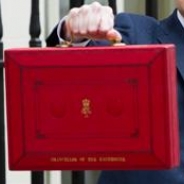31/03/2017, by Low Incomes Tax Reform Group, Tax article - General

The Low Incomes Tax Reform Group has set out an agenda for making the tax system fairer and easier to use for taxpayers on low incomes.
Introduction
In its report entitled 'A future for the low-income taxpayer', the LITRG proposes a range of practical steps to make the tax and associated welfare systems work better for people on low incomes, whether they are employed, self-employed, pensioners or employers (as in those who employ carers).
LITRG’s view of the tax system as it works for low-income ... Continue Reading
23/03/2017, by Low Incomes Tax Reform Group, Tax article - PAYE and Payroll Taxes, National Insurance, NICs

National Insurance is soon to become a great deal more expensive for some self-employed earners on very low profits – Low Incomes Tax Reform Group (LITRG) explains.
Introduction
When the Chancellor of the Exchequer announced the reversal of his Budget measure to increase the rate of Class 4 National Insurance contributions (NICs), saying that there would be no rate increases during the current Parliament, the self-employed may have breathed a sigh of relief. But National Insurance is soon ... Continue Reading
22/03/2017, by Lee Sharpe, Tax article - PAYE and Payroll Taxes, National Insurance, NICs

TW Ed points out that the new rules for salary sacrifice may yet offer some useful tax-saving opportunities, thanks to the transitional provisions.
Introduction
We have previously warned of the impending changes to the salary sacrifice regime that will, broadly, negate any advantage to choosing a benefit over a cash alternative, wherever offered.
These will apply to existing salary sacrifice arrangements, flexible benefit packages, or new arrangements – wherever the employee has the option ... Continue Reading
16/03/2017, by Lee Sharpe, Tax news - Budgets and Autumn Statements

The Chancellor has announced that the proposed hike in the main rate of self-employed National Insurance Contributions (NICs) will be scrapped.
The change of heart was apparently prompted after he perceived a "clear view" had arisen amongst fellow Conservative MPs that the increase would have broken their election manifesto pledge not to increase NICs.
It was initially pointed out on the Chancellor's behalf that the precise wording of the legislation that implemented that pledge - the ... Continue Reading
10/03/2017, by Low Incomes Tax Reform Group, Tax article - Budgets and Autumn Statements

The key theme of the Chancellor’s Spring Budget 2017 in relation to taxation was the importance of having a fair, sustainable and competitive tax system.
Introduction
The Chancellor’s Spring Budget 2017 was both Mr Hammond’s first and last Spring Budget, and the first of two Budgets expected in 2017. Having introduced his key theme, he justified several announcements by reference to improving fairness.
LITRG review of the Budget announcements
The Low Incomes Tax Reform Group ... Continue Reading
09/03/2017, by Lee Sharpe, Tax article - Budgets and Autumn Statements

The Positives: It could have been worse
The Negatives: It very soon will be
The general consensus appears to be that this Budget was uneventful. But some of the manoeuvring does not augur well.
Good Tax Points
Making Tax Digital
Businesses with turnovers below the VAT registration threshold will be able to defer the onslaught – sorry, onset – of MTD by a whole 12 months to commence April 2019. Yay. If you thought quarterly reporting was an end unto itself, then you credit HMRC ... Continue Reading
08/03/2017, by Grant Thornton, Tax article - Budgets and Autumn Statements

Reflections on the 2017 Spring Budget, from Grant Thornton
There has been a focus recently on the different ways in which individuals can provide their services to those engaging them, whether that be as employees, through personal service companies (PSCs) or on a self-employed basis. Many individuals now work in the so-called gig economy, no longer providing their services as employees but on a self-employed basis. There have been high profile cases such as that involving Uber ... Continue Reading
06/03/2017, by Lee Sharpe, Tax article - Business Tax

The new Allowances that were announced in the former Chancellor’s March 2016 Budget were firmed up in the Finance Bill 2017.
These are ‘real’ allowances, (kind of), and not to be confused with the pseudo-allowances the former Chancellor inflicted on us the year before, which later turned out to be nil-rate bands in disguise. (Nope, "former Chancellor" simply does not get old).
At the moment, Schedule 5 of the 2017 Finance Bill holds the relevant legislation.
The key points are:
There ... Continue Reading
04/03/2017, by Low Incomes Tax Reform Group, Tax article - General

HMRC must do more to support disabled people to manage their tax affairs if the Government’s drive to halve the disability employment gap is to succeed, says LITRG.
Introduction
The Low Incomes Tax Reform Group (LITRG) has told a wide-ranging consultation that certain tax rules and HMRC practice work against the Government’s commitment to halve the disability employment gap. Its response goes on to highlight some particular difficulties faced by disabled people and employers in the ... Continue Reading
27/02/2017, by Low Incomes Tax Reform Group, Tax article - Income Tax

The Scottish Parliament has confirmed the rates and thresholds for income tax that will apply to the non-savings and non-dividend income of Scottish taxpayers from 6 April 2017.
Background: Scottish rate of income tax (SRIT)
During the current tax year (2016/17), people who live in Scotland pay the SRIT. This only applies to non-savings and non-dividend income. Because of the way the SRIT works, and because the rate was set at 10%, the tax rates for Scottish taxpayers are the same as those for ... Continue Reading




